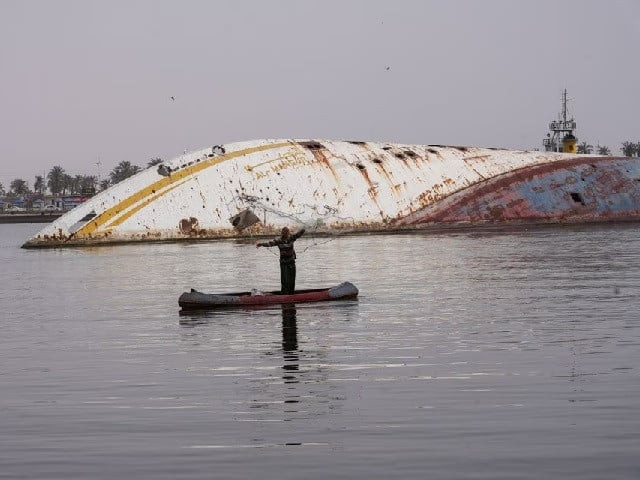Saddam's rusting yacht serves as picnic spot for Iraqi fishermen
'Al Mansoor' was once a symbol of Iraqi president's wealth and power

Capsized in a river in southern Iraq, the rusting wreck of a yacht that belonged to Saddam Hussein serves as a stark reminder of his iron-fisted rule that ended with the US-led invasion two decades ago.
The 121-metre (396 ft) "al-Mansur", a symbol of Saddam's wealth and power when it was built in the 1980s, is today a destination for sightseers and fisherman who clamber aboard the wreck to picnic and drink tea.
"When it was owned by the former president, no one could come close to it," said fisherman Hussein Sabahi, who enjoys ending a long day on the river with a cup of tea aboard the wreck.
"I can’t believe that this belonged to Saddam and now I'm the one moving around it," he said.
Saddam issued orders for the yacht, which he never boarded, to leave its mooring at Umm Qasr to Basra for safekeeping a few weeks after the invasion got underway on March 20, 2003.
But it was targeted by US-led forces, and later capsized in the Shatt al-Arab waterway as it fell into decay.
In the turmoil that followed Saddam’s downfall, the yacht was stripped bare and looted, with everything from its chandeliers and furniture to parts of its metal structure removed.
One of three yachts owned by Saddam, the yacht could accommodate up to 200 guests and was equipped with a helipad.
US officials estimated in 2003 that Saddam and his family may have amassed up to $40 billion in ill-gotten funds.
Another of his yachts has been turned into a hotel in Basra.
Though some Iraqis say the wreck should be preserved, successive governments have not allocated funds to recover it.
"This yacht is like a precious jewel, like a rare masterpiece you keep at home," said Zahi Moussa, a naval captain who works at the Iraqi ministry of transport.
"We feel sad that it looks like this."



















COMMENTS
Comments are moderated and generally will be posted if they are on-topic and not abusive.
For more information, please see our Comments FAQ